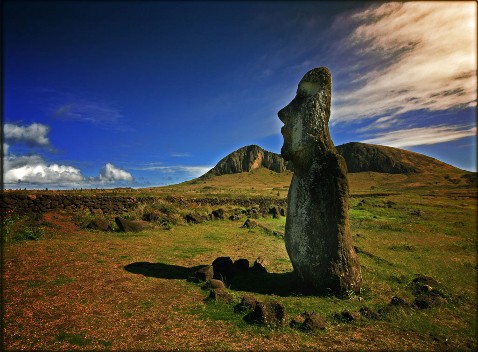There are the nightmares. It had been so long. I almost forgot them. My children kidnapped, shot. I stand in front of the masked men, offer myself up, belly first, like a fertility sacrifice. I wake in a start. I tap into the collective consciousness, the collective anxiety. I tap into the anxiety that is always there. That anxiety resides right in my chest in the place where, when Lucia died, a dragon woke. He coughs little impotent puffs of smoke.
You can never protect your babies. Not really, his raspy voice whispers. I will wake in you, breathe fire, swoop in low, carry them off. I will fight until your death for them, but only if I can see. So much I cannot see.
Vulnerability seeps out my pores. I dampen shirts with it. The dragon thinks there is real danger, so I dampen him too. I wrap my children in bubble wrap, place them on a low shelf. They tear through my packing tape, giggling and stir-crazy.
WE CAN'T SIT STILL, MAMAAAAAAAAAAA! WE WANT TO RUN!
They run wild, climb walls, jump and twirl and become trapeze artists, skydivers, lion tamers, lumberjacks. And they want to go to school. And I can only see them sitting there while madmen shoot into locked doors. They will always seek freedom and independence the more I seek isolation and protection. I know because I was once them.
Twenty children died on Friday in Connecticut. Another twenty-two children were attacked in China by a knife-wielding man. It happened in a primary school as well. None were killed. As the news came in on Friday, I sat in my daughter's elementary school auditorium, my cell phone video recorder pointed at the stage, watching class after class of children walk onto stage singing holiday songs. It was terrible knowing the news, but I hadn't heard any of the details. I could only think of how small each of them looked, even the big ones. So much smaller than I remember being. When I arrived home, I read that one full class at Sandy Hook had been massacred. I shudder. I visualize one whole class from my town. I just sat in front of six classes of students ages 5-10--their parents hopeful, proud, delighted, enchanted, trusting. It is too much to think about. I turn away, ashamed that I cannot stare at the grief, not completely at first. It takes me a few hours to turn fully toward the young lives, to read the names of the dead, to see their faces. And when I do, the grief steamrolls me, the anxiety overtakes me, the dragon wants blood.
 photo by pirindao.
photo by pirindao.
I face east, like Maoi, waiting for answers. The spring moves in, damp and alive, reminding me of tomorrow. I ask the dragon, but he's reeling too. "Nothing to be done," he grumbles. Then south, the deserts offer me a dry breeze, thorns and poison and the elements of survival. The west offers me a damp cloth, and a sip of tea. "Catch your breath, child. I have no answers either." Finally north. I plant my feet firmly on earth, bellow a guttural, throaty noise, more animal than human. The earth opens, slowly I sink until just my eyes stand above ground. No more questions. There are no answers in the snow and frost. Not in the cold. Not in the desert. Not in the sea. Not in the quarters, not in the elements. They understand nothing of humans. The murders are senseless. I grapple with my footing again. Four years later. The silence cruel and unnerving.
You must look within, the wind creaks. You must look within. You must look for the place that weeps, the place that hides, and ask it to release you. You must answer the question yourself. You must face that grief, because it is another expression of love. There is great beauty in this world. Look at it longer than the murders. Look at the people holding one another. Look at them longer than the murderer.
I weep for the mothers and fathers, the siblings, the grandparents, for the humans who miss everything now, who have to rebuild themselves, who have to find a reason to get out of bed, who have to go through a first year, who have to come to December, like me, and mourn their children. I tear up thinking of the journey they will lead, the peace that will never come. My own loss seems so small, so meaningless. And that is okay. It is. But it was seismic to me, catastrophic even.
Lucia is dead four years on Friday. All of these losses coexist and don't battle for dominance. My grief and their grief and the grief of a nation, the world. I have to sit with undeniable truths. In this world, babies die. Twenty innocent children die together in the place that everyone considered safest for them. All this mingles together, jumbles up, and I forget for whom I am mourning. And it doesn't matter. Perhaps I should have always been mourning for all the children who die before they've lived, who die by the hands of violence, who die by the random placement of umbilical cords in wombs, who die by knives on the other side of the world. And I was.
My husband and I held each other and cried. Blubbered, even. It has been a long time since we have done that. We talked about the school shootings. "I can't imagine losing a five year old. I couldn't handle it, Angie. I couldn't."
I know. I couldn't either, except I would have to, and so would you. Because before she died, we said the same, and then we did.
There is nothing left of comfort. It is meaningless, and besides, we need something more than comfort. We need hope, a sheer idiotic belief in something. I take Mr. Roger's advice to look for the helpers, the assistants, the compassion, the grief, the expressions of love, the people throwing themselves in front of bullets, so children don't die. And I think of this babylost community, who holds each other in the face of grief, lights candles, abides when people no longer will. Compassion is all that is left of good.
Please use this space to share the ways in which the news of the murders in Connecticut have affected you, your family, and your grief.



